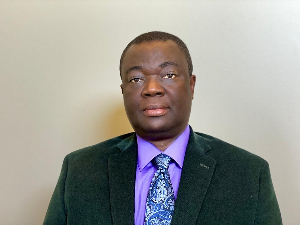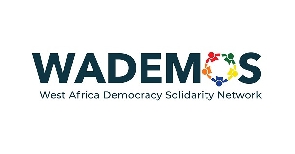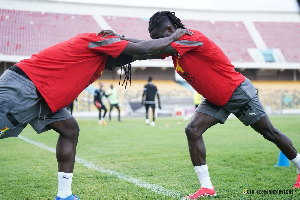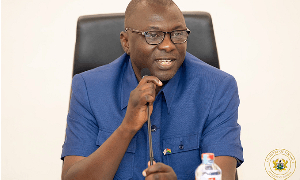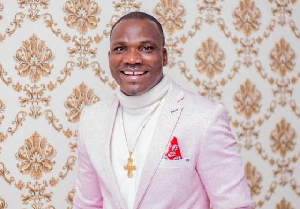The West Africa Democracy Solidarity Network (WADEMOS), in collaboration with Tournons La Page (TLP) and other civic and pro-democracy actors, entreats ECOWAS to prioritize and revisit the discussions on the revision of the ECOWAS Protocols on Democracy and Good Governance amidst the deteriorating state of democracy in West Africa.
Democracy in West Africa has seen a reversal since the last decade. Among the key drivers of democratic and political decline are the resurgence of unconstitutional changes of government (UCGs), violations of constitutional term limits, and the poor quality of elections conducted in recent times.
Currently, the region is returning to the earlier days of coups d'état with Mali, Burkina Faso, Niger, and Guinea in transition following military coups in these countries. Additionally, there have been several successful and unsuccessful attempts at changing constitutions to enable incumbent presidents to extend their term of office.
In 2023, except Liberia, international and local observers as well as citizens have questioned the credibility and integrity of electoral outcomes in Nigeria and Sierra Leone.
As a network of non-state actors, we are deeply concerned about these developments in the sub-region and strongly believe that critical attention has to be given to the revision of the ECOWAS Protocols on Democracy and Good Governance and the adoption of term limits.
To this extent, civil society organizations met in Nigeria on December 8, 2023, ahead of the ECOWAS Heads of State Summit to deliberate on the deteriorating state of democracy in the subregion, with particular emphasis on addressing the issue of term elongation and term limits in West Africa.
The meeting made several observations and recommendations while recognizing and acknowledging efforts by ECOWAS toward the review of the supplementary
protocol.
ECOWAS Heads of State: Interventions on Term Limits in West Africa
With regards to ECOWAS and the review of the protocol, including interventions around the term limit, we note the following:
1. The ECOWAS Supplementary Protocol on Democracy and Good Governance, which
was adopted in December 2001, and was aimed at standardizing democratic values and principles across the sub-region.
This was to ensure that in all West African countries, there would be a transparent electoral process, respect for the rights and freedoms of all persons, non-interference of the military in the governance of a country, and respect for constitutionalism, among others.
The institutionalization of the Protocol is indicative of ECOWAS’ belief that good governance and the rule of law are non-negotiable conditions for sustainable development and peaceful coexistence.
However, after more than two decades of implementing the protocol, there are inherent gaps that expose its inadequacies and render it ineffective in responding to the current and emerging socio-political environment in WA.
2. In recognition of this, ECOWAS has made some effort to revise the supplementary Protocols on Democracy and Good Governance. In July 2015, during the ECOWAS Heads of State Summit in Accra, West African leaders rejected a declaration to impose a two-term limit on all countries in the sub-region after Togo and The Gambia, both with presidents who have been in power for more than two terms, purportedly opposed the idea.
Following the September 5, 2021, coup d'etat in Guinea and at an extraordinary
session of the Authority of Heads of State and Government in Accra, the President of the ECOWAS Commission was instructed to initiate a process to review the 2001 Supplementary Protocol as part of efforts to strengthen democracy.
Unfortunately, at the Sixty-First Ordinary Session of the Authority of Heads of State and Government in Accra, Ghana, in July 2022, steps taken to table proposals for consideration did not materialize due to continued opposition from the governments of Togo, Senegal, and Ivory Coast.
The West African leaders, however, commended the Commission on the progress made in building consensus on the review of the 2001 ECOWAS Protocol on
Democracy and Good Governance
At the sixty-second ordinary session of the Authority of Heads of State and
Government, held in Abuja, Nigeria, on December 4, 2022, ECOWAS stated in its
communiqué that it “reaffirms its strong condemnation of unconstitutional changes of government and underscores the urgent need for collective action to entrench democracy and promote stability in the region” and pledged to apply severe sanctions for non-compliance.
The Authority further directed the Commission to continue discussions with Member States and other stakeholders to build consensus and finalize the revision of the 2001 Supplementary Protocol on Democracy and Good Governance. Additionally, the Heads of State also directed the President of the Commission to submit a draft revised supplementary protocol to the Heads of State at their next session.
4. It has been over two years since the ECOWAS Heads of State first instructed the Commission to initiate the process to review the 2001 protocol to strengthen
democracy and the attempts to build consensus. Since that period, two more coups in Burkina Faso and Niger have occurred, while political instability has engulfed countries like Sierra Leone and Guinea-Bissau.
Lessons from recent developments in the sub-region point to the basic fact that the current ECOWAS protocol lacks the resilience and resistance capacity to effectively coordinate regional responses to the current socio-political threats in West Africa.
Threats to Democracy Resulting from Term Limit Extension
At the end of the 20th century, many African countries adopted presidential term limits as part of a broader set of constitutional rules that accompanied the transition from personal and authoritarian rule to pluralistic modes of governance.
While term limits were widely embraced by the larger African public, these rules have in recent years come under increasing attack from incumbent presidents seeking to extend their tenures.
These quests are often couched in language that portrays a leader’s desire for more time in office as a response to popular demands. The Afrobarometer survey data results from 34 African countries from Round 8 show that there is strong support (7 in 10 Africans) for presidential term limits among citizens across almost all countries. This is true even in those countries that have never had term limits and those that have removed them in the past 15 years. Continuing efforts to dispense with.
term limits thus reveal a major disconnect between African leaders and African citizens on this issue, underscoring the lingering legacy of big-man rule on the continent and highlighting the fragility of African democracies.
Indeed, presidential term extension has proven to be a major source of political instability, human rights violations, and abuse in West Africa, compounding the prevailing insecurity in the sub-region. Burkina Faso’s current predicament can be traced to the 2014 attempt to amend the constitution to allow for presidential term extensions, which led to citizen mobilization and protest.
Similarly, violent street clashes leading to the deaths of at least 85
people characterized protests by civilians against attempts at term elongation in Côte d'Ivoire in 2020. And recently, in Senegal, protests against term limits resulted in the clampdown of citizens, leading to violence and the deaths of protesters due to police brutalities.
It’s instructive to note that, through the revised constitution in Togo in 2019, a term limit was introduced, which now sets the presidential mandate to a five-year term. As it has been the practice, the amendment, unfortunately, does not apply retrospectively, thus making the incumbent president qualified to contest the 2020 presidential election and the upcoming elections in 2025, despite having already served three terms since becoming president in 2009. These are all early warning signs due to the absence of standards for term limits in West Africa.
Recommendations
The call for the review of the ECOWAS supplementary protocol is of major concern to most African citizens, as amplified by the Afrobarometer Survey.
Sadly, and very disappointingly, ECOWAS failed to prioritize the discussion of this pertinent issue at the most recent meeting (the sixty-third ordinary session) of the Authority of Heads of State and Government held in Guinea-Bissau in July 2023. Much as we welcome and appreciate ECOWAS’ demonstrated commitment to building consensus on the revision of the Supplementary Protocols, we contend that the Authority of Heads of State and Government has been reticent with the issue of term limits and hasn’t been prioritized enough and treated as urgent considering the resultant effect of term elongation on peace and security
in the sub-region.
We, the members of WADEMOS, comprising over 35 civil society organizations in West Africa, TLP, and the coalition of CSOs against term limits, therefore call on the Authority of Heads of States and Government of ECOWAS to prioritize the adoption of term limits on the agenda at the upcoming ECOWAS Heads of State Summit to be held in Abuja on Sunday, December 10th.
Demands
It is on the back of this that we make the following concrete demands:
1. We believe strongly that now, more than ever is the time for ECOWAS to promulgate a code on presidential term limits to ensure its harmonization in the proposed revision of the ECOWAS Supplementary Protocol.
The degenerating socio-political climate requires immediate intervention to forestall further reversals of democracy in the subregion, with term elongation being one of the major drivers. ECOWAS must recognize TL as the preferred option of its citizens and aim to respond to their aspirations.
Citizens of WA are urging for term limit adoption, and by the next sitting of the Authority of Heads of State in 2024, ECOWAS must respond to the demand to reflect its orientation as an “ECOWAS of Peoples."
2. Again, ECOWAS must reflect on the sanction regime against violations of the protocol beyond the unconstitutional changes in government to cover other issues like termelongation in the revised Supplementary Protocol to enhance compliance andenforcement of the constitutions of all member countries.
Conclusion
As civil society and pro-democracy actors working on regional issues covering democracy, peace, and security, as well as good governance, we are ready and willing to collaborate with the ECOWAS Commission to expedite action on this all-important issue of term limits, which is a major driver of instability in the region.
Finally, we want to use this medium to add our voice to the unfortunate and disturbing incidents in Guinea-Bissau and Sierra Leone and the seeming lack of progress with the transition processes in countries under unconstitutional changes of government.
We note with disappointment the stalemate in Niger, where the timelines for the transition have not been agreed upon between the Junta and ECOWAS. Again, we condemn the growing solidarity among military leaders in West Africa, which undermines sub-regional integration and calls for immediate compliance and respect of the agreed transition timelines and charter and the
regional normative instruments for the timely restoration of constitutional order in these countries.
Thank you.
Press Releases of Saturday, 9 December 2023
Source: WADEMOS
Pro-democracy actors and civil society in west africa enjoin ECOWAS to expedite the review of the protocol on democracy and good governance including the adoption of term limits
Opinions
